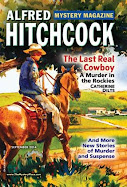What is it about second books? Anne R. Allen and I got musing about that, and this blog post was the result:
The second book of the Merry Widow Murder series, The Silent Film Star Murders, came out this year. I'm pretty sure this book tried to kill me (some might say, rather appropriate for a crime series...)
 It's not as if I'm a virgin to series.
It's not as if I'm a virgin to series.
(Probably, I should reword that; I am a happily married woman, after all.)
What I mean is, I've done this before. The Merry Widow is my 4th series. The first three didn't kill me, so why should this darn book?
The trouble with second books is four-fold:
1. The Expectations are HUGE.
We all dread the following review: "It was okay, but not as good as the first book."
Everyone
- and I do mean everyone -expects the second book will be just as good
or better than the first. In fact, they demand it. You've set their
high hopes with the first book. If you didn't, then they wouldn't buy a
second book in the first place. And if they don't buy a second book,
your publisher won't want a third.
I was lucky with the Rowena Through the Wall series. The second book (Rowena and the Dark Lord) garnered better reviews than the first.
And I was even
luckier with The Goddaughter's Revenge. That novella (part of The
Goddaughter series) won the Derringer and the Crime Writers of Canada
Award of Excellence. Several more followed.
But will that luck hold? I have no idea how Silent Film Star will do, compared to the first book, and the suspense may just kill me.
2. You have to be a bit of a magician.
Meaning, you have to weave in enough backstory about the first book so that people who read this book without having read the first will not be lost. At the same time, you have to weave backstory in a way that is quick and lively, so as not to bore the people who read the first book.
It's a learned skill you get better at with practice.
3. You lose an important suspense element of stand-alone books.
The trouble with a crime series is your protagonist must survive to be in the next book. Whatever happens, your protagonist must live through it. And if your reader knows this is a series, they know this part.
For some readers, it's why they like series books. They WANT the reassurance that they are not reading for four hours, just to find out their beloved protagonist kicks the bucket in the end. I'm in that category. I don't like books that end badly for the main character.
BUT - it also
means an important element of surprise has been eliminated from the
story. In a stand-alone, when you start reading, you won't know the
reason it's a stand-alone. Could be the main character didn't survive
to be in another story. That adds suspense.
4. What about Character Arc?
If you study how to write a novel, you will probably come across the concept of Character Arc. Basically, it means that by the end of the book, your protagonist should be changed in some way by his experiences in the story.
A classic example would be: A woman is a very nice, kind, unassuming mother. But then her child is kidnapped and she becomes a fierce fighter in his recovery, finding violence in her that she didn't know possible.
That's an extreme example. You can probably remember a popular sci-fi movie with this theme.
Our problem with series books: some lit courses teach that every book should have a character arc.
Trouble is, if you have six book series, is your character going to change six times in six different ways? That becomes impossible, if not darn silly.
So in a series, I try to make my characters become even more what they are. As the series grows, they become even more determined in their goals, more devoted to their individual causes. And in The Merry Widow Murders series, more determined to see justice done, whether inside or outside the law.
SO WHY DO WE DO IT?
By now, any reasonable person must be wondering why anyone would want to write a series, taking into the account above.
For that, I can come up with two reasons:
- We're insane.
- We cannot leave our beloved characters behind.
I don't know about the first, but the second is me. I'm a suck. I love my characters like wayward children. They stay in my mind for years and years, begging me to write more about them. I've had readers tell me that reading the next book in The Goddaughter series was like revisiting old friends.
So forgive me now if I leave this post. I'm just finishing up book 3, and my characters are calling.
Compared to Agatha Christie by The Toronto Star, Melodie Campbell hopes to survive book 3. In the meantime, you can see how she survived the above by ordering book 2, The Silent Film Star Murders. Available at all the usual suspects (Barnes&Noble, Chapters/Indigo, Amazon, etc.)














